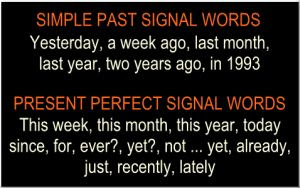 I. Apakah TOEIC® Test?
I. Apakah TOEIC® Test?Sejak kira-kira tahun 2004-2005, dunia pendidikan SMK seolah mendapat orientasi baru dalam mempersiapkan lulusan SMK yang berbobot dan sanggup bersaing di percaturan dunia kerja global, khususnya di bidang pembelajaran bahasa Inggris. Kemampuan berbahasa Inggris lulusan SMK mulai diukur dengan menggunakan TOEIC® sebagai sebuah standar kriteria baru. Belakangan, dunia perguruan tinggi, yang selama ini hanya akrab dengan TOEFL, juga mulai memperkenalkan TOEIC® untuk mempersiapkan mahasiswa memasuki dunia kerja.
TOEIC® adalah singkatan dari Test of English For International Communication. TOEIC® dikembangkan oleh Educational Testing Service (ETS) yang bermarkas di Princeton, New Jersey. ETS adalah sebuah organisasi non-profit yang menyelenggarakan tes-tes seperti TOEFL dan GRE. TOEIC® dirancang secara khusus sebagai tes untuk mengukur kecakapan berbahasa Inggris dalam konteks dunia kerja internasional. Sejak tahun 1979, TOEIC® telah menjadi standar penilaian kemampuan berbahasa Inggris para pekerja yang menggunakan bahasa Inggris sebagai bahasa asing. Sekarang, lebih dari 1,5 juta tes TOEIC® diselenggarakan di berbagai penjuru dunia setiap tahunnya.
Materi tes TOEIC® dipersiapkan oleh para spesialis bahasa. Sedangkan panduan isi dan spesifikasi tes diatur oleh TOEIC® Committee of Examiners. Seluruh isi, pertanyaan/soal, spesifikasi, dan tes akhir dikaji untuk memastikan kelayakan isi tes TOEIC® dan menghindari adanya bias kultural dan ras, sesuai dengan prosedur ETS yang berlaku.
II. Bagaimanakah format TOEIC® Test?
Tes TOEIC® adalah tes tulis yang menggunakan kertas dan pensil dan terdiri dari 200 soal pilihan ganda yang terbagi menjadi 2 (dua) bagian (section), yaitu Listening Comprehension dan Reading. Setiap bagian memiliki alokasi waktu yang terpisah. Listening Comprehension selama 45 menit, dan Reading selama 75 menit.
- Listening Comprehension Section
Listening Comprehension section adalah bagian pertama dalam tes TOEIC®, yang mengukur kemampuan memahami bahasa Inggris lisan sebagaimana yang digunakan di Amerika Utara. Materi dan pertanyaan (soal) direkam sesuai dengan standar Bahasa Inggris Amerika Utara, sedangkan pilihan jawaban tercetak di lembar tes. Listening Comprehension section terdiri dari 100 soal dengan menggunakan kaset audio. Ada 4 (empat) bagian dalam Listening Comprehension section:
- Part I: Photographs - 20 soal - 4 pilihan jawaban.
- Part II: Question-Response - 30 soal - 3 pilihan jawaban.
- Part III: Short Conversations - 30 soal - 4 pilihan jawaban.
- Part IV: Short Talks - 20 soal - 4 pilihan jawaban.
- Reading Section
Reading section adalah bagian kedua dalam tes TOEIC®, terdiri dari 100 soal yang tercetak di lembar soal tes. Pada Reading section, peserta tes TOEIC® harus mencoba memahami berbagai macam bacaan atau teks sesuai dengan kemampuan dan kecepatan mereka. Reading section memiliki alokasi waktu 75 menit, dan terbagi ke dalam bagian-bagian sebagai berikut:
- Part V: Incomplete Sentences - 40 soal - 4 pilihan jawaban.
- Part VI: Error Recognition - 20 soal - 4 pilihan jawaban.
- Part VII: Reading Comprehension - 40 soal - 4 pilihan jawaban.
III. Apa isi TOEIC® Test?
Sesuai dengan peruntukan tes TOEIC® yang dirancang untuk memenuhi kebutuhan dunia kerja, maka soal tes TOEIC® dikembangkan dari bahasa lisan dan tertulis dari berbagai negara di seluruh dunia dimana bahasa Inggris dipakai di tempat kerja. Soal tes TOEIC® meliputi berbagai macam suasana dan situasi tempat kerja, seperti:
- General business - kontrak, perjanjian, pemasaran, penjualan, perencanaan bisnis, konferensi.
- Manufacturing - manajemen pabrik, lini perakitan, kendali mutu.
- Finance and budgeting - perbankan, penanaman modal, perpajakan, akunting, penagihan.
- Corporate development - penelitian, pengembangan produk.
- Offices - pertemuan, komite, surat-menyurat, memorandum, telefon, faks, pesan e-mail, peralatan dan perabotan kantor, prosedur perkantoran.
- Personnel - penerimaan pegawai, penugasan, pensiun, gaji, promosi, lamaran kerja, periklanan.
- Purchasing - pembelanjaan, pemesanan, pengiriman, penagihan.
- Technical areas - elektronik, teknologi, spesifikasi, perawatan mesin, penyewaan, layanan listrik dan gas.
- Travel - kereta api, pesawat terbang, taksi, bus, kapal, feri, tiket, jadwal, pengumuman stasiun dan lapangan terbang, penyewaan mobil, hotel, reservasi, keterlambatan dan penundaan.
- Dining out - makan siang bisnis dan informal, banquets, resepsi, reservasi restoran.
- Entertainment- bioskop, theater, musik, seni, media.
- Health- asuransi kesehatan, mengunjungi dokter, dokter gigi, klinik, rumah sakit.

















